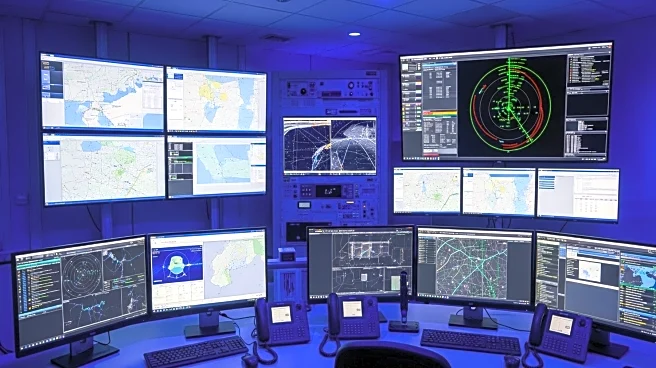What's Happening?
U.S. Central Command is setting up a coordination center in Israel to oversee the ceasefire agreement between Hamas and Israel. This initiative is part of a broader effort to ensure compliance and stability in the region following recent hostilities. The center will facilitate communication and coordination between the involved parties, aiming to maintain peace and prevent further escalation. The decision to establish this center underscores the U.S. commitment to supporting diplomatic resolutions and monitoring peace agreements in volatile regions.
Why It's Important?
The establishment of a U.S. coordination center in Israel is significant for several reasons. It highlights the U.S. role in international peacekeeping and its strategic interest in Middle Eastern stability. By actively monitoring the ceasefire, the U.S. aims to prevent further conflict, which could have broader implications for regional security and global diplomatic relations. This move may also influence U.S. foreign policy and military strategy, potentially affecting defense spending and international alliances. Stakeholders such as political leaders, defense contractors, and international diplomats will closely watch the center's effectiveness in maintaining peace.
What's Next?
The next steps involve operationalizing the coordination center and establishing protocols for monitoring the ceasefire. U.S. officials will likely engage with Israeli and Palestinian leaders to ensure the center's objectives align with broader peace efforts. Potential reactions from regional actors, including neighboring countries and international organizations, could shape future diplomatic engagements. The success of this initiative may lead to similar efforts in other conflict zones, influencing U.S. military and diplomatic strategies globally.
Beyond the Headlines
Beyond immediate peacekeeping, the coordination center may have long-term implications for U.S.-Israel relations and Middle Eastern geopolitics. It could serve as a model for international conflict resolution, emphasizing the importance of third-party monitoring in peace agreements. Ethical considerations regarding U.S. involvement in foreign conflicts and the balance between military presence and diplomatic efforts may arise, prompting discussions on international law and sovereignty.









